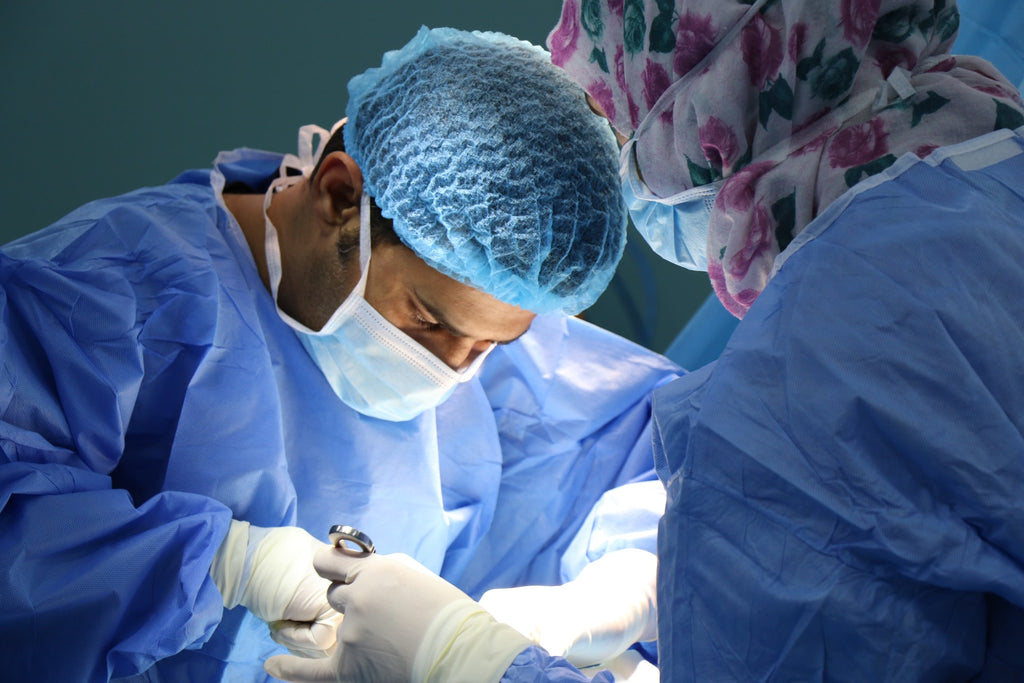Hemorrhoidectomy, also popularly known as surgery for removing hemorrhoids, is a procedure that involves making incisions in the tissue around your hemorrhoid. The goal is to tie the swollen vein inside your hemorrhoid to prevent any instance of bleeding while the hemorrhoid is removed.
However, this ’isn’t the only procedure, or surgery people opt for to get rid of hemorrhoids.
Hemorrhoidopexy is also a form of treatment widely popular among those suffering from the problem. So how is it different from hemorrhoidectomy? You may be wondering.
For one, it doesn’t require an incision and is also a relatively less painful procedure, but it may also turn out to cost you an arm and a leg.
So, let’s get to the crux of it all. If hemorrhoidectomy is one of the most recommended surgeries for dealing with painful hemorrhoids, how effective is it? And most importantly, what side effects does it have? Let’s find out!
When Is Hemorrhoidectomy Required?
Remember, surgery isn’t usually the first intervention a health care professional recommends. Only when all the other treatments have failed are you given the option of undergoing it. However, some conditions also make the procedure seem more appropriate such as:
- Having large internal hemorrhoids
- Having both external and internal hemorrhoids
- Getting other treatments done (like rubber band ligation) but seeing no results
- Undergoing non-surgical treatments for internal hemorrhoids but seeing no improvement
- Having large external hemorrhoids that cause a lot of pain and also make it hard to maintain the hygiene of the anal region
How Well Does It Work?
Surgery is one of the most effective ways to cure hemorrhoids. However, its success, in the long run, depends mostly on your ability to incorporate a change in daily bowel habits. After all, the goal is to avoid straining and constipation. There may also be a very slight possibility of your hemorrhoids returning after surgery, but the chances are pretty rare and tend to rely on how well you’re able to adapt to certain lifestyle changes to prevent their recurrence.
Post-Surgery Care and Expectations
It’s important to note that recovery often begins within a few weeks and not immediately after undergoing the procedure. Moreover, you may still be under the effects of a local anesthetic right after the surgery, which should last for about 6 to 12 hours and help you experience post-surgery pain relief. As a part of healing after surgery, your health care professional may discourage you from leaving immediately. You should do so only once your anesthesia has worn off, and you have urinated. It may also be likely for you to experience trouble urinating since there may still be swelling in the tissues. Furthermore, make sure to have someone drive you home.
How to Care For Yourself After Surgery
- It’s normal to experience a little pain after surgery, and your health care professional will most likely give you a prescription medicine for it. Make sure to take it as per the prescription and inquire about safe over-the-counter medicines.
- You may also experience some bleeding during the first bowel movement after the procedure, and it’s completely normal.
- Make sure to eat a bland diet such as crackers, dry toast, bananas, plain rice, applesauce, etc., and have plenty of hydrating liquids for a few days following your surgery. Once you have successfully followed the course, start incorporating a small amount of fiber into your diet and gradually increase it.
- Apply ice packs to reduce pain and to swell in the anal region.
- Soak yourself frequently in a warm sitz bath as it is known to relieve muscle spasms and pain.
- Based on your doctor’s recommendation, try out a stool softener to smoothen your bowel movements and avoid straining at all costs as it may cause your hemorrhoids to return.
- Your doctor may also prescribe an anti-biotic following the surgery to reduce pain and prevent infection.
- Make sure to go for your follow-up exams consistently, based on your doctor’s recommendation.
What Are the Side Effects of Hemorrhoidectomy?
Some of the most common side effects of surgery include urinary retention, bleeding, and pain. However, there are also other relatively rare risks associated with it, such as:
- Trapped stool in your anal canal
- Surgical area infection
- Difficulty in controlling the bowel or bladder
- Anal area bleeding
- Blood collected in the surgical area
Fortunately, most of these problems are short-lived. You may experience the following later on too:
- Recurrence of hemorrhoids
- Rectal prolapse
- A fistula or an abnormal passage that forms between the rectal or anal canal and another area
- The anal canal becomes narrow
The Bottom Line
The success of hemorrhoidectomy has a lot to do with your ability to incorporate changes in your daily habits, especially when it comes to bowel movements. Learning how to pass stools smoothly and effectively is the key to keeping the effects of the surgery intact for a long time.
Hemorrhoidectomy is, in fact, one of the best procedures out there to help you seek better long-term results than procedures that inhibit blood supply to hemorrhoids. At the same time, surgery is also far from economical and may cost you an arm and a leg. Furthermore, there is a greater chance that you will end up experiencing discomfort from risks and side effects.
Since it is a rather invasive process, it causes more pain than any other procedure. On the other hand, fixative procedures are much less risky and painful and don’t require as much time away from your daily activities. All in all, surgery is often recommended as a last resort to helping you get rid of complications associated with hemorrhoids. However, it should in no way be treated as the only resort.
In the end, the key is to understand your symptoms well and seek medical help when necessary.

